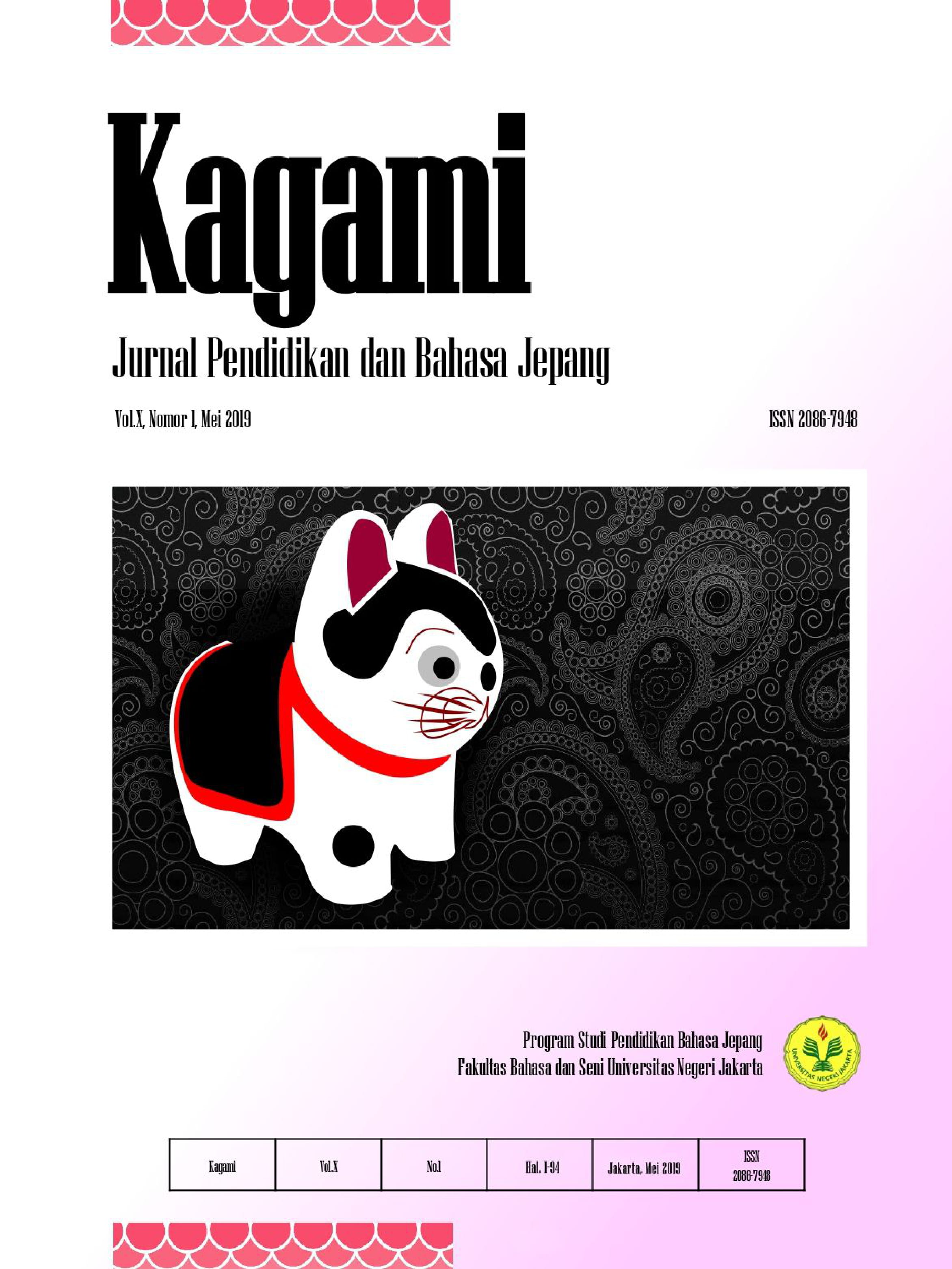ANALISIS PEMAKAIAN RAGAM BAHASA DANSEEGO DAN RAGAM BAHASA JOSEEGO PADA SITUASI MENYAMAR
Keywords:
Danseego, Joseego, Ninshou daimeishi, ShuujoshiAbstract
In Japanese, various languages known Danseego are namely the variety of languages commonly used by men and the variety of languages of Joseego are namely the variety of languages commonly used by women. This occurs in some normal situations, but in abnormal situations such as disguised situations, these languages are also used for certain reasons. This attracted the attention of researchers to carry out this research, namely the analysis of the use of various languages Danseego used by women and the variety of Joseego languages used by men in disguised situations seen from several aspects, namely the use of the use of personal pronouns (Ninshoudaimeishi) and final particles (shuujoshi). The purpose of this study is to know in general the reasons that make men use a variety of Joseego and women use a variety of languages Danseego in an undercover situation. Data was taken using descriptive methods and by taking data from Japanese-language Drama and Films with the theme of disguise, with stages of data collection, data analysis, and presentation of the results of the analysis. The results of the analysis and discussion can be obtained from the results of ninshoudaimeishi used are oreおれ, atashi あたし, omae おまえ, and shuujoshi forms used are wa わ, kashira かしら and ze ぜ. For reasons of intimacy, highlighting self-assumption, angry, firmness, directing speech, weakening opinions, highlighting femininity and masculinity.
References
Chandra, T. 2009. Nihongo no Joshi (Partikel Bahasa Jepang). Jakarta: Evergreen.
IMA Foundation .2006. Terjemahan Minna no Nihongo I. Surabaya. Kabaya, Hiroshi dkk. 1998. Keigo Hyougen. Jepang.
Kabaya, Hiroshi dkk. 2009. Keigo Hyougen Handobukku. Jepang.
Kusumastuti, Ajeng Rosita. 2008. Anilisis Penerjemahan Pronomina Persona Tunggal Bahasa Indonesia dalam Novel Ronggeng Dukuh Paruk ke dalam Bahasa Jepang. Skripsi. Depok: FIB Universitas Indonesia.
Matsura, Kenji. 1994. Kamus Bahasa Jepang Indonesia. Kyoto: Kyoto Sanggyo University Press.
Sudjianto, dan Ahmad Dahidi. 2007. Pengantar Linguistik Bahasa Jepang. Jakarta: Kesain Blanc.
Sudjianto. 2004. Gramatikal Bahasa Jepang Modern. Bekasi: Oriental.





